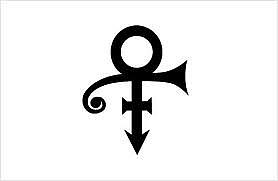Nobody came for Prince: The death of The Artist and the criminalization of addiction

Last Thursday the Midwest Medical Examiner’s Office released the report that declared “accidental opioid overdose” as the cause of Prince’s death. The first rumor I heard along those lines – hours or days after his death – I felt that plunging sensation in my chest. That “Please make it not be true” that the heart knows how to scream. I wished for Prince that it could’ve been almost anything but that. Even the conspiracy theorists who cried “murder by the Illuminati” sounded to me like they had dreamed up a better end for him than accidental opioid overdose. Presumably, murder would have put a swifter end to his suffering. Opioid addiction owns you, holds you as its powerless prisoner, for years before it finally lets you go.
I am one of the ones who spent two solid weeks after Prince’s death listening to, watching and reading everything I could about him. Not about the rumors as to the cause of his death. But about his work. I couldn’t stop. That YouTube clip where he played “Summertime” on a grand piano during a sound check at a stadium in Japan, as he chewed thoughtfully on a piece of gum, calling out key changes into a microphone while the afternoon breeze rippled through a few strands of his hair. I watched it over and over.
Clicking every piece of media that came into my field of vision over those few weeks, I came across a piece on Ebony.com called “Why you don’t want to come for Prince.” The subheading reads “Think the Beyhive is tough? Prince’s Purple Army is not here for innuendo about their idol’s death. Here’s why The Artist’s legacy is ironclad.”
Published before the cause of Prince’s death was confirmed, the article summarized the many theories as to the circumstances surrounding Prince’s death – drug overdose, HIV, zika, murder – and grouped all the theories together as “negative press.” The piece ultimately argues that none of that gossip and speculation could ever touch Prince’s legacy as an artist. I agree. How he died has no impact on his brilliance as an artist. It changes nothing.
The article captured that touching notion that a fan base can claim a celebrity as its very own. That touching drive to protect anyone you love – a celebrity or your brother – from a soiled reputation. But the article also revealed a widely held assumption that addiction is criminal, that to say someone has an addiction is “to come for” them.
One of the sources quoted in the article called speculation that Prince was an opioid addict “the worst of the rumors.” There is a problem when we frame opioid addiction as a terrible thing to say about someone. There’s a problem when we want to protect Prince after his death from speculation that he was addicted to opioids rather than having policies and systems in place that might have protected him from opioid addiction in the first place.
Too late for Prince, the Obama administration has proposed and passed a number of measures intended to expand access to addiction treatment, expand access to rescue medications for overdose, and prevent unnecessary prescribing. Indeed, prescriptions for opioids have fallen this year for the first time in twenty. The measures recognize the need for a medical approach – not a criminal justice one – to opioid addiction.
To call the speculation (and now confirmation) of Prince’s opioid addiction “coming for Prince” is to perpetuate the notion that addiction is a criminal act. To throw ourselves on top of Prince to protect his legacy is to throw all others still living with addiction under the bus. When we frame addiction as a shame to be swept under the rug, we vilify addicts, which helps land them in prison – or dead – rather than in treatment programs.
In all the content we’ve seen about Prince in the last six weeks, we’ve seen the stories about what a lovely man he was, about his under-the-radar charity work and generous donations. That’s why the news of his addiction has been so shocking. He didn’t seem like a drug addict. Not the way many people think of them. Prince? No way, he was good guy. Yes, by all accounts, he was. Might that mean then that our perception of addicts is wrong? Lots of good people are taken hostage by addiction. Moms and dads, sons and daughters, neighbors and friends. One in four people who gets an opioid prescription for anything other than cancer ends up struggling with addiction. And like Prince, a lot of them die by accidental overdose.
From 1999 to 2014, more than 165,000 people died overdosing on prescription opioids. It’s prescribing, not criminal activity, that continues to fuel this problem, CDC says. But until we can treat addiction like a disease like cancer or diabetes, our parents, our children, and the celebrities we call our very own, will not be freed from the captivity that these drugs hold them in. They are owned by this addiction, just like Prince was. To say so is not to “come for him.” I wish someone had come for him – to help him – sooner.

